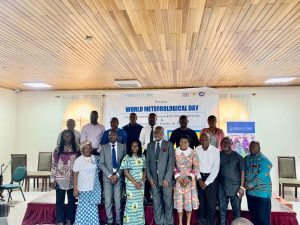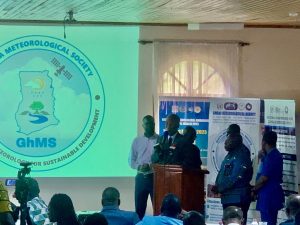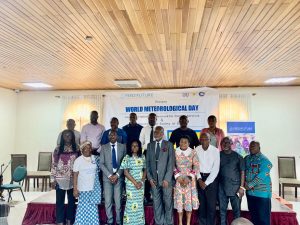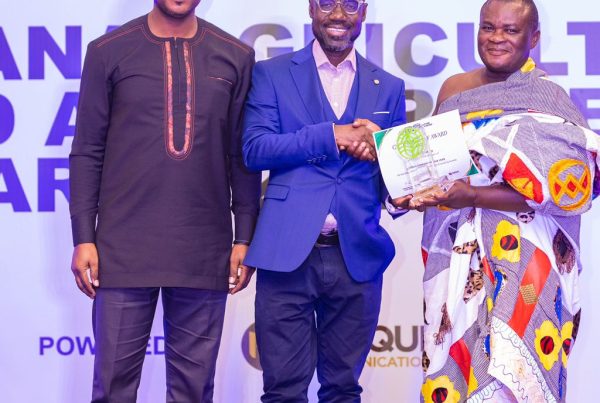


Thursday 23rd March 2023, marks World Meteorological Day globally. Under the auspices of the Ghana Meteorological Agency, ESOKO joins other government organizations, private institutions, and agencies in Ghana to commemorate this day and also launch the National Meteorological Society & Ghana National Framework for Climate Services.
The launch was chaired by the Board Chair of Ghana Metrological Agency (GMet) Hon. George Amo, who gave the welcome address highlighting the importance of GMet in climate change, the Agriculture sector, life, and our properties. The representative from the Ministry of Communications & Digitalization Mr. Alfred Nortey giving the keynote address mentioned the Ministry of Communication will always support GMet in policy formation on metrological services, he commended USAID, Policy link, and Feed the Future for their immense support in funding Climate information projects.
Esoko scaling up Climate Smart Agriculture Technologies with a focus on downscaled seasonal forecasts information through mobile phones to farmers in Ghana and beyond. ESOKO agrees and understands the need for Ghana to have a holistic National Framework for Climate services and a National Methodological Society which will contribute to global warming, having all stakeholders, services providers, researchers, and the support of the World Meteorological Organization (WMO).
Among the specific objectives of the Ghana National Framework for Climate Services (NFCS) were :
The objective of the NFCS is the provision of timely and sector-relevant climate services for climate risk management and adaptation to the Impacts of climate variability and change on socioeconomic development.
1. This framework presents national policies and programs that demonstrate Ghana’s commitment to ensuring climate-resilient communities.
2. It also identifies the existing climate services initiatives for the priority sectors of the GFCS (Agriculture and Food Security, Water Resources, Disaster Risk Reduction, Health, and Energy).
3. The framework proposes action plans and identified needs for implementation, and also an institutional arrangement and financial implementation guidelines for resource mobilization to sustain the operationalization of Ghana.
4. The NFCS is expected to guide and strengthen institutional capacity in the provision of efficient climate services to promote climate risk management for the impacts of climate variability and change.
5. It is also expected to guide climate change and variability mainstreaming in the various sector to build resilience in Ghana.
The interim executive for the newly launched National Meteorological Society Prof. Benjamin Lamptey with excitement cautioned that NFCS is not a Project but an ongoing institution. Adding to that, Prof. Nana Ama Brown Klutse who played a major role in drafting the Ghana National Framework for Climate Services said in her Presentation
“We should work together in Unity with collective efforts”.


